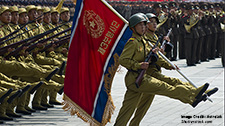China and the Nordics: Tracing Trends in Relations

Julian Tucker and Johannes Nordin
Summary
- Diplomatic relations between Modern China and the Nordic States grew from different points of departure yet followed roughly congruent paths, adhering closely to Beijing’s domestic and regional priorities.
- Trade and political exchanges were instrumentalized to facilitate the immediate goals of Nordic and Chinese leaders, going through periods of greater proximity and disruption as objectives transformed.
- Modern relations have been deeply affected by the increased economic, social, and interpersonal exchanges inherent to the globalized world, with significant implications for discourses on human rights, international value chains, technological development, and security.
- The dual perception of China as both a partner and competitor is fueling a push to reevaluate Sino-Nordic relations. This manifests itself in concerns about the national security impact of mergers and acquisitions, escalated diplomatic rhetoric, and Beijing’s growing willingness to apply economic pressure over political issues. At the same time, the recognition of China’s importance on the international stage necessitates cooperation on financial, governance, and environmental issues.
- Even during periods of lacking state-to-state relations, ideological exchanges continued to shape Sino-Nordic relations. Maoist thought and practice entered Nordic political discourse at a critical juncture, shaping a societal legacy of questioning hierarchy and structures, even after China’s embrace of market principles disillusioned Nordic Maoists.
- Over the past decade, the Arctic has elicited ever more attention from governments, businesses, and civil society. In the context of Sino-Nordic relations, the region occupies a special place with unique challenges and opportunities pertaining to climate change, evolving security considerations, and potential trade and investment flows.
- The main body of the text is sectioned into four parts. The first section explores the historical backdrop of Sino-Nordic relations and provides a brief overview of the interplay between Chinese domestic developments and diplomacy. This is followed by a discussion in the second section of contemporary facets of relations, including economic ties, security concerns, and political considerations. The third section explores an ideological dimension of relations by examining the impact of Chinese political thought and rhetoric on Nordic politics and society. Finally, the report touches upon the Arctic as a unique intersection of Nordic and Chinese interests.
The authors would like to express their gratitude to the Konrad Adenauer
Stiftung, which has made this report possible through its generous support.
Related Publications
-
The Political Split at the Heart of Taiwan’s Struggle against Foreign Disinformation
Taiwan’s struggle against foreign disinformation and concerns about China’s impact on its 2024 election has received much international attention recently. This issue brief examines the domestic and international politics behind […]
-
ISDP Annual Report 2023
ISDP’s Annual Report for the year 2023. We look back on 2023, a year in which tensions and conflicts captured the strategic space in ISDP’s focus areas, making headlines around […]
-
Russia-DPRK Relations: Implications for the UNSC’s Mandate
The burgeoning military cooperation between Russia and the DPRK poses a significant challenge to global security. The simplified characterization of the alleged arms deal as a product of converging interests […]
-
An Interview with Professor Torbjörn Lodén: EU and U.S. Relations with China in Retrospect and Looking Ahead
The Institute for Security & Development Policy (ISDP) has for the past three years had the honor and privilege of Professor Torbjörn Lodén serving as its Head of the Stockholm […]
-
Finland-Taiwan Relations: An Overview and Changes after COVID-19 Pandemic
Abstract: Despite the lack of formal diplomatic relations between Finland and Taiwan, the two sides have maintained a practical relationship through trade, tourism, and educational and cultural exchanges. The COVID-19 […]




